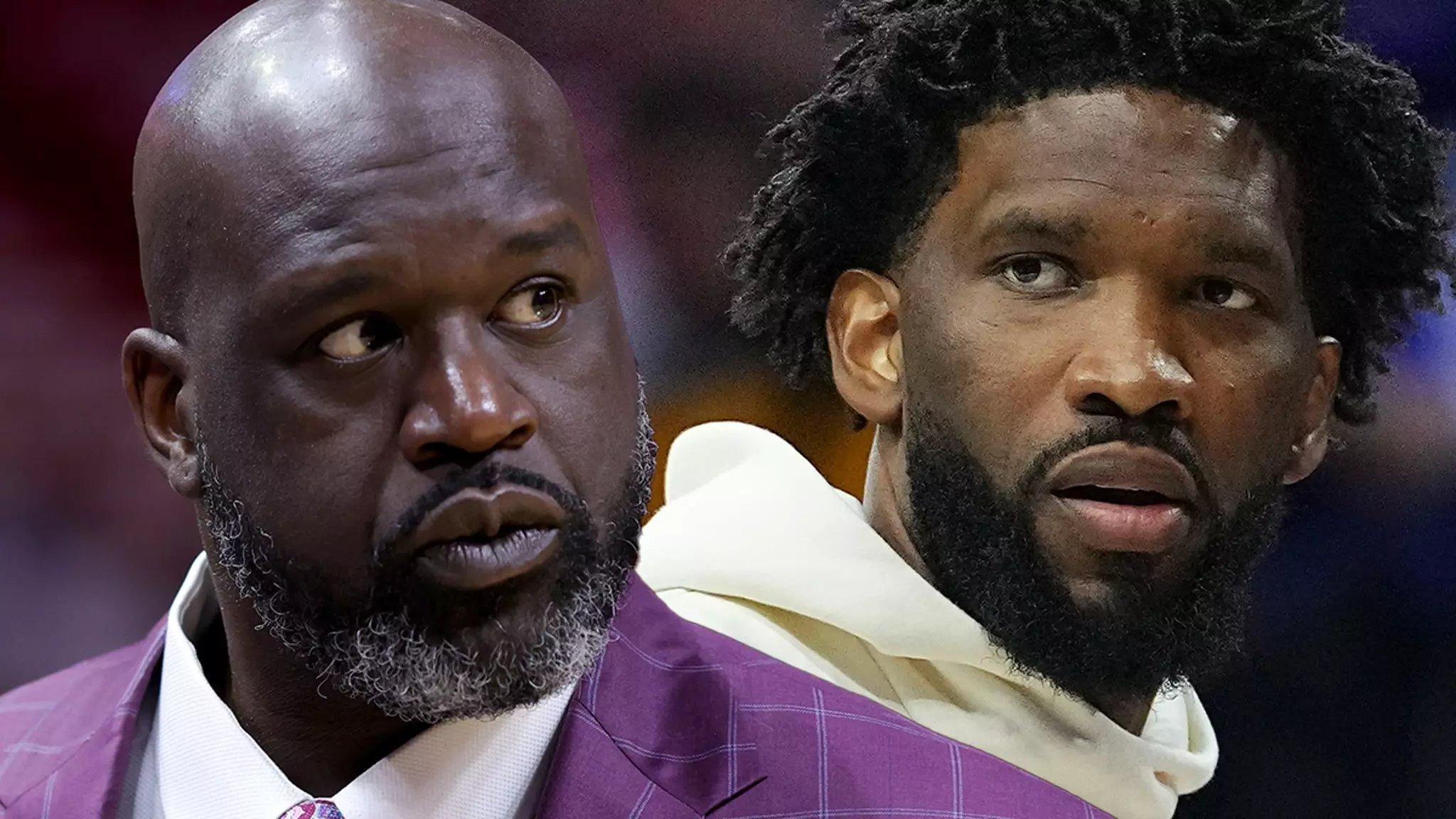In the caliber of elite NBA talent, few players stand tall like Joel Embiid. As the reigning MVP and centerpiece of the Philadelphia 76ers, expectations are etched deeply into his role. However, recent comments from basketball legend Shaquille O’Neal have sparked a debate regarding the commitment and mindset required to live up to such expectations. O’Neal did not hold back when criticizing Embiid for his reluctance to participate in back-to-back games, calling him “soft” during a segment on his podcast. This confrontation encapsulates the growing scrutiny surrounding player load management while shedding light on the culture of performance in the NBA.
The crux of the controversy lies not only in Embiid’s decision to rest but also in the context of his injury management. After missing the preseason due to what the team cited as left knee injury management, Embiid’s absence during the season opener against the Milwaukee Bucks raised eyebrows. The young star’s admission that he may not play in back-to-back games for the remainder of his career further fueled O’Neal’s frustration. For a player of Embiid’s caliber, such admissions contradict the fierce competitiveness that O’Neal exemplified throughout his career, where he consistently demanded peak performance from himself night in and night out.
O’Neal’s perspective stems from his experience as one of the game’s greats. With four championships and 15 All-Star selections under his belt, Shaq’s criticism is rooted in a deep understanding of the game’s pressure and the sacrifices required to achieve greatness. He pointed out that Embiid, at the age of 30 and with the skill set he possesses, should be pushing himself rather than opting for rest. O’Neal’s insistence on the competitive nature of the game highlights the divide between the current generation of players and the expectations set by past legends.
Embarking on an analysis of player health and performance, it is critical to consider the evolving landscape of the NBA, where player well-being often takes priority over the momentary thrill of competition. While Embiid holds the potential to dominate, as evidenced by his franchise record of 70 points in a single game last season, the question arises: is it strategic to sacrifice long-term health for short-term accolades? O’Neal’s view is that such talent should not shy away from the physical demands that the game entails, arguing that today’s players possess the tools to thrive without navigating around the challenges of fatigue.
With the NBA exploring the ethics of player participation, particularly concerning the controversial load management practices, O’Neal’s critique opens up a discussion that transcends individual players. It invites stakeholders—including fans, players, and management—to grapple with the balance between health and competitiveness. Embiid’s silence on Shaq’s statements further raises questions about the dialogue between current players and past legends, and how they reconcile their differing philosophies in a sport that continues to evolve.
While O’Neal’s remarks might come off as harsh, they raise pivotal questions about the expectation placed on today’s stars. Joel Embiid stands at a crossroads where the pursuit of excellence must align with a responsibility to perform, lest he becomes defined by his hesitations rather than his extraordinary talent.

Leave a Reply